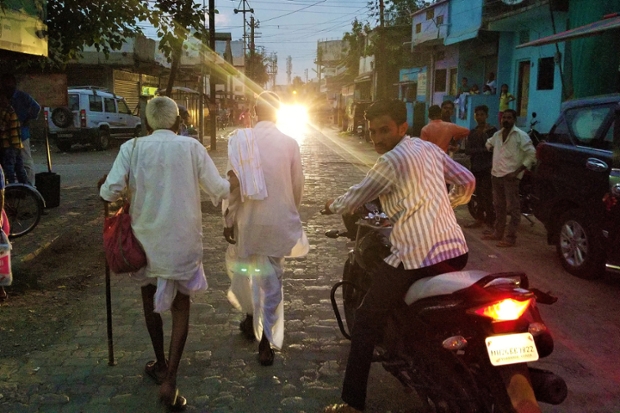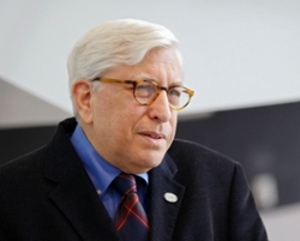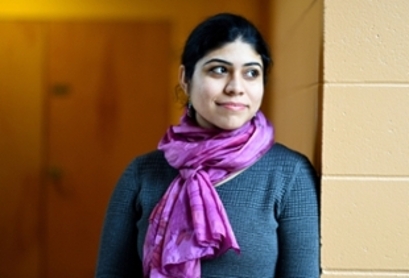WGBH series examines "Caste in America,” including at Brandeis
"Caste in America" focuses on discrimination faced by low-caste Indian immigrants in the U.S.
 Photo: Phillip Martin, WGBH News
Photo: Phillip Martin, WGBH News
Professor Lawrence Simon
Laurence Simon, Professor of International Development and Director of the Center for Global Development and Sustainability at the Heller School, served as an advisor to a major new radio and web series looking at the impact of caste, the religious and social hierarchy of Indian society. “Caste in America,” launched on Feb. 25, focuses on the discrimination low-caste Indian immigrants face in the U.S. as a result of the importation of this ancient hierarchical system of human classification.
Simon’s research and teaching center on critical issues of social exclusion, including caste, and he is joint editor-in-chief of a new academic journal to be published by the Brandeis Library, CASTE: A Global Journal on Social Exclusion.
In part four of the series: “Caste bias isn't illegal in the United States. But this university is trying to fight it,” Brandeis staff member Jaspreet Mahal, MA’17, talks about hearing students of higher castes make derisive comments about Dalits, people formerly known as “untouchables,” not realizing her husband is a member of that group. Mark Brimhall-Vargas, chief diversity officer and vice president for diversity, equity

Jaspreet Mahal, MA'17
"When a university has a non-discrimination policy, obviously it will contain protected categories of identity that are prohibited from discrimination based on federal or state law,” Brimhall-Vargas tells WGBH. “But there are other categories of identity that are prohibited based only on the will of the campus, that in this campus community we shall not discriminate against certain people.”
WGBH News and PRI’s The World worked in collaboration with the Pulitzer Center to report and produce the multi-part examination of “Caste in America.”
Parts one and two of the series focus on members of the Indian outcaste group formerly known as “untouchables” or Dalits. In India, many cite limited employment and marriage options, differing treatments in educational and work settings, and in some cases the denial of housing by more upper caste and dominant caste groups. In the U.S., casteism is compounded by a lack of specific legal protection; and by caste organizations that perpetuate caste divisions rather than integration. Dr. B.R. Ambedkar, the Dalit “Martin Luther King, Jr.” of the mid-20th century, said that caste will only disappear once inter-caste marriages become commonplace.
In part three, a reporter discusses her parents’ mixed-caste
In the week of March 4, PRI’s The World takes listeners to Ambedkar Street in New Jersey to report on the impact of Dalit pride in the United States and the increasing numbers who are refusing to change tell-tale surnames in growing displays of resistance.
Award-winning journalist Phillip Martin had a lead role in developing the series. He traveled to India with a Dalit man, Suraj Yengde, to report on his life simultaneously as a Dalit and a Harvard scholar. He returns with Yengde to the US to explore local Indian immigrant communities and the impact of caste in America.
Martin developed the series with assistance from the Pulitzer Center on Crisis Reporting. Reporters Kavita Pillay, Tinku Ray and Arun Rath each contribute episodes to the series, which was edited by Pulitzer Prize-winning journalist Ken Cooper—a former Washington Post reporter based in India—and award-winning WGBH Executive Editor Aaron Schachter.
Categories: Humanities and Social Sciences





